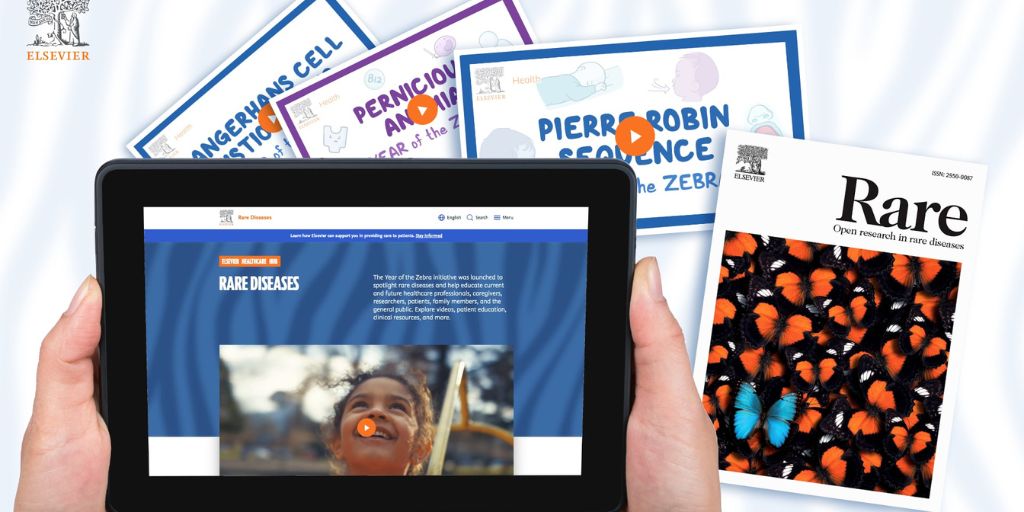
Rare diseases have historically been overlooked by the medical community. This class of conditions encompasses over 7,000 distinct disorders, and while each individual disease may be uncommon, collectively they have a profound impact on the lives of more than 400 million people worldwide.
But despite this significant and far-reaching impact, the lack of research and treatment options prolongs the journey to diagnosis for these patients and leads to suboptimal outcomes. A study by the European Organisation for Rare Diseases found that as many as 25% of patients endure a wait of 5 to 30 years from the first sign of their symptoms to receive a diagnosis, with 40% initially receiving multiple misdiagnoses, leading to ineffective and unnecessary medical interventions. Additionally, 95% of rare diseases lack an FDA-approved treatment in the US, and at least 50% have no dedicated foundations or research support groups.
In the UK:
Over 3.5 million people are living with a rare disease.
Only 1 in 10 adults with a rare condition have a care coordinator to help organise different aspects of their care.
Only 1 out of 20 of these diseases have an approved treatment or medicine to help.
This is not to say that significant strides have not been taken in recent years to improve outcomes and raise awareness of the global rare disease community. In December 2021, the United Nations General Assembly formally adopted the first-ever UN Resolution on “Addressing the Challenges of Persons Living with a Rare Disease and their Families”, affirming that addressing the needs of persons living with a rare disease is essential to advancing the 2030 Agenda for Sustainable Development. In the same year, the Department of Health & Social Care published the UK Rare Disease Framework, outlining four priority areas, presenting a national vision to improve the lives of the approximately 3.5 million people in the UK living with a rare disease.
Though this is a positive step forward, the reality is that more action needs to be taken to better support this global community, and to drive a long-lasting, positive difference in the lives of all those affected. Through increased research efforts, the knowledge gap obstructing the understanding of these conditions, their causes, and potential treatments can be bridged.
Improved education and awareness within the healthcare community, including medical and nursing students, are essential for championing the perspectives of those with rare diseases and increasing global support. Armed with deeper insights, healthcare professionals can deliver higher-quality patient care, ensuring timely and accurate diagnoses. Moreover, amplifying access to support groups and educational materials is vital in alleviating the emotional and physical burdens these diseases inflict on patients and their families.
One approach to help achieve this goal is exemplified by Elsevier Health’s Year of the Zebra initiative. Since launching on February 28, 2023, coinciding with Rare Disease Day, the program has made significant strides in raising awareness and understanding of these conditions within the medical community and beyond. By spotlighting a different rare disease weekly throughout the year, the healthcare community can explore the intricacies of individual conditions and access educational materials. The initiative generated over 5.8 million views in the first year, building awareness and understanding of rare diseases to a wider audience, and providing the rare disease community with access to some of the most comprehensive information and resources covering all aspects of living with a rare condition.
The Year of the Zebra program also champions the dissemination of valuable knowledge and resources to the healthcare and research community. This includes the
launch of the open-access scientific journal, Rare. Open Research in Rare Diseases, which features the latest research in the field and highlights the patient experience through peer-reviewed articles from patients and caregivers themselves. Journals like this play a pivotal role in providing a platform for authors to share their findings, fostering international collaboration and advancing scientific knowledge for patients, clinicians, academics, and policymakers.
Jan Herzhoff, President of Elsevier Health, said: ”We believe the ‘Year of the Zebra’ initiative, including our new open access journal and rare disease healthcare hub, coupled with Osmosis popular and effective educational videos, make us uniquely positioned to deliver meaningful content and resources for the benefit of these patients and their families. By working collaboratively with researchers and the patient advocacy community, we hope that these efforts continue to have an impact in creating awareness and driving action towards more research and quicker diagnoses and treatment options.”
The healthcare industry’s commitment to improving rare disease awareness is key to enhancing the quality of care and support for individuals living with these conditions. Ongoing efforts to educate and support professionals and caregivers are vital in creating a more responsive and understanding environment for their patients. While for the millions of people around the world living with a rare disease, it can be difficult to access basic medical information online, let alone find a community that can offer understanding. Such initiatives are a testament to how the wider healthcare sector can help individuals feel more supported, meet their needs, and make their voices heard.











